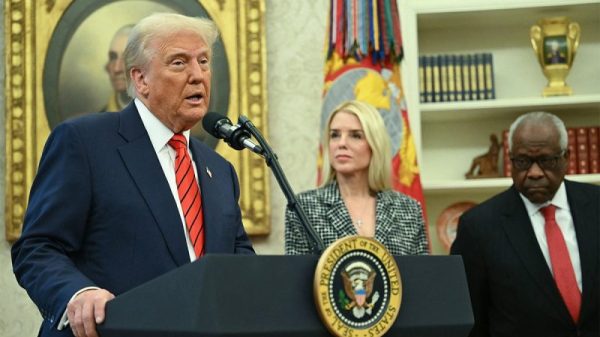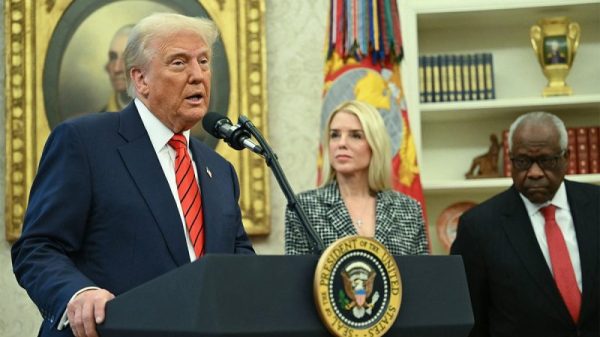The 118th Congress is on track to make the “do nothing” Congresses of the past look like juggernauts. Axios reports on Quorum data showing that just 20 bills were passed by both chambers and signed into law in 2023. That is by far the fewest for a calendar year in decades.
Split control of Washington, a narrow House GOP majority, polarization and infighting among Republicans that culminated in the historic ouster of Speaker Kevin McCarthy (R-Calif.) have conspired to grind legislationto a halt.
But the lack of progress on one issue in particular is inexplicable: Ukraine. The issue epitomizes Congress getting in its own way.
Congress has left for the holidays without authorizing new spending for a country that appears to need it badly to keep fending off Russia’s invasion.
On the surface, the reasons are evident. Many disproportionately loud House Republicans are wary of continuing to send money, and so the party insists that it be paired with changes to immigration policy. Negotiations are underway and apparently progressing, but not in time to get something done right now. And later may be too late — the White House says the money will dry up by the New Year, and the war already appears gloomier for Ukraine.
This shouldn’t be quite so difficult: The White House is pushing for more money, the leaders of both parties in both chambers have emphasized the need for it, and the House has in the past overwhelmingly supported it.
Democrats have been the biggest cheerleaders for supporting Ukraine. On the GOP side, that distinction belongs to Mitch McConnell (R-Ky.), the Senate minority leader.
The hang-up, then, was always likeliest to come from the House, where a growing group of lawmakers have voted against the aid. Among them from the early stages of the war was now-House Speaker Mike Johnson (R-La.).
But as I wrote during his ascension, Johnson has mostly objected on grounds that the money wasn’t accountable enough. He has at other points stressed the need to combat Russia’s invasion — sounding much more like the hawks that once dominated the congressional GOP.
And after he was elected speaker, Johnson delivered the kind of message that suggested Ukraine aid would indeed be a major emphasis for him.
“Now, we can’t allow Vladimir Putin to prevail in Ukraine, because I don’t believe it would stop there. And it would probably encourage and empower China to perhaps make a move on Taiwan,” Johnson told Fox News’s Sean Hannity in late October. “We have these concerns. We’re not going to abandon them.”
He also seemed to align himself with McConnell’s “axis of evil” talking point, lumping Russia’s aggression in with China and Iran.
“We have such big priorities in this moment right now, Sean. We have Israel being attacked. We have unrest. We have the Ukraine situation we have got to deal with,” Johnson said, also mentioning China, Iran, the economy, the border and fentanyl.
Nevertheless, the unease within the House GOP conference led Republicans to demand that the aid be paired with immigration changes, which the Biden White House acceded to. That has opened up its own can of worms, given how difficult it has been for Congress to pass much of anything on immigration in recent decades.
But also consider this: Despite the reluctance in the House GOP, every major Ukraine aid vote has received the support of at least 73 percent of the House. That low water mark came in September, when Congress was passing a relatively paltry $300 million.
That was significant because only 46 percent of House Republicans voted in favor of the aid, dropping support below half of the conference for the first time. House Republicans have long (if haltingly) operated under what was once known as the “Hastert Rule,” which requires legislation being brought up for votes to have majority support within their own conference.
But just before that vote, only 42 percent of House Republicans and 22 percent of the House overall voted for an amendment by Rep. Matt Gaetz (R-Fla.) that would have cut off Ukraine entirely. That suggests that, at least as of three months ago, a clear majority of House Republicans and an overwhelming majority of the House overall saw potential value in continuing to help Ukraine, somehow. Those votes would seem to be available if leaders really wanted to push.
In one way, Republicans have scored a potential coup: gaining major concessions on a key issue for them — the border — in exchange for something a large number of them have already supported anyway. But the intermingling of the two issues has also created a great deal of uncertainty and jeopardized the aid.
Some dynamics favor a deal, but others push against it — including the possibility that Republicans might not want to take any ownership of a border situation that currently ranks among President Biden’s biggest liabilities for 2024. The downside of employing wedge politics is that you can’t be sure in which direction the wedge will ultimately push. If there’s no grand bargain, the current wrangling would certainly make it more difficult for Johnson and his party to go back to any kind of stand-alone Ukraine measure. The base would howl.
And in the end, a major foreign policy goal that leaders including Johnson have pitched as crucial could somehow fail.
It could be disastrous for Ukraine. But it would be a fitting coda for this year of Congress.







































